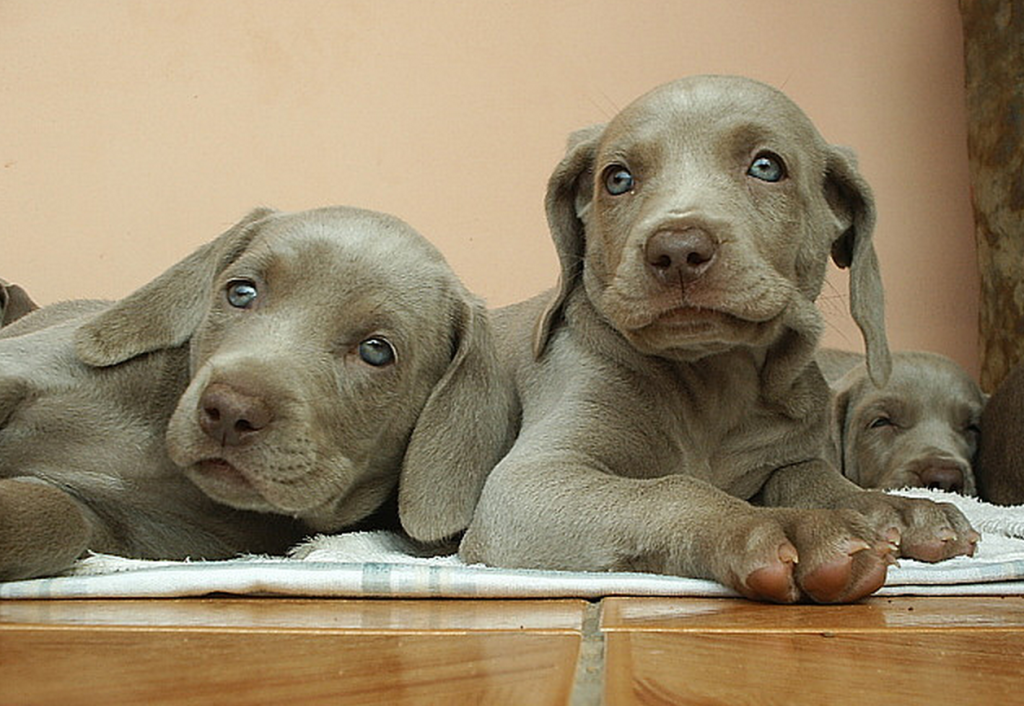You love your dog, right? Why would it matter where she came from? Are there lasting repercussions of your puppy’s origins?
Let’s set aside the ethical question about puppy mills and look at what it can really mean to love a puppy mill dog.
The ASPCA says that a “puppy mill is a large-scale commercial dog breeding operation that places profit over the well-being of its dogs—who are often severely neglected—and acts without regard to responsible breeding practices.”

Since puppy mills by definition want to maximize profits and minimize cost, some of the things that they omit can have lasting ramifications for the product-your dog.
1. Congenital issues– If your puppy’s parents were chosen to breed because they were handy (and randy), they were not assessed for their genetic health. Their pedigrees were not researched and they were not screened for genetic diseases themselves. Add that to the likelihood that they were already inbred and you might have an increased chance that your puppy will express or carry a genetic issue like a septal defect (a hole in the heart) or many others. Responsible breeders know the diseases that are over-represented in their breed of choice and have worked with their veterinarian to screen their breeding pool. They also follow up with their puppies to make sure they grew up happy and healthy and offer health guarantees. Puppy mills may say that they offer a guarantee, but if your vet finds an issue, they will not refund money, only offer to swap dogs. You are already attached to your dog and there is little advantage of getting one of its siblings bearing similar genes anyway.

2. Dental disease– Malocclusions (underbite, overbite and other misalignment of the teeth) certainly show up in all types of dogs, but responsible breeders will choose dogs with a normal bite as their breeding animals. Judges in the show arena will look at the way the teeth align so dogs bred to show must have correct dental conformation. Puppy mills know that prospective puppy parents are unlikely to look at the puppy’s teeth and since they minimize veterinary care, many puppies have not been closely examined by a vet who cares enough to check. These dental abnormalities will make the pet’s teeth harder to care for and cause abnormal wearing to the enamel where teeth rub together that shouldn’t. Misalignment disrupts the normal self-cleaning mechanisms in a dog’s mouth and these pets require more comprehensive dental care for their entire life. Sometimes the teeth can actually penetrate the hard palate in these cases and cause unrelenting pain.
3. Orthopedic issues– People like really big dogs and really little dogs. It is human nature to be attracted to something novel. In response to this demand, puppy mills have bred smaller and smaller dogs (and larger and larger dogs). When size is the motivator for breeding pairs, it is easy for them to ignore the other issues that can come with size. Very tiny dogs are at an increased risk for medial patellar luxation (when the knee cap slips out of position toward the middle) and giant dogs have an increased risk for lateral patellar luxation (when the knee cap slips to the outside). Other important, painful and lifelong issues for your puppy mill dog can include hip dysplasia, elbow dysplasia and many consequences of abnormal limb conformation leading to arthritis and lameness.

4. Dermatologic disease– My dog, Dora was seized by a rescue group from a puppy mill situation with a broken leg that had never been treated and almost no hair on her body. She was suffering from Demodex, a type of mange mite that is found on all dogs in small numbers, but overgrows in genetically susceptible individuals and causes significant disease. All dogs suffering from Demodecosis should be spayed or neutered because of the genetic link associated with this disease. It can usually be treated or controlled and Dora is fine now (except for her crooked leg), but if your dog came from a puppy mill, his parents were probably not screened for this issue and he is at risk. Treatment is prolonged, expensive, and in some cases not effective.
5. Substandard Care– As I have mentioned in the above topics, bad things can develop genetically as a result of poor parent selection, but we cannot overlook the things that result from cost cutting on husbandry. Prenatal care (nutrition and medical care) is critical to the creation of healthy offspring and pediatric care is equally as important. Let’s face it, comprehensive veterinary care with examinations, high quality vaccines and prescription parasite coverage is costly. Puppy mills see the loss of parents and puppies because of inferior healthcare as an acceptable risk, just the cost of doing business, but when it is your new puppy who has parvovirus or hookworm anemia, the risk becomes unacceptable. Even if your puppy mill dog escapes puppyhood diseases, she may have lasting impact from the inadequate nutrition and care as a fetus and puppy. Her bones may not develop normally or she may develop gastrointestinal issues from malnutrition early on. The list of medical consequences of poor early care is exhaustive, not to mention the consequences of being poorly socialized from cage rearing in a non-home environment.

Many of my clients that get puppies from such places feel that they are “rescuing” them from a bad situation and they are, but when they purchase that puppy, they allow the business model to continue and prove successful. It is one thing to adopt a rescue dog with a shady past and take on the responsibilities that may ensue, but quite another to pay full price for a supposedly healthy and normal dog whose health and well-being were compromised in the name of profit. It is also important to understand that there could be lasting implications for your furry family member.

